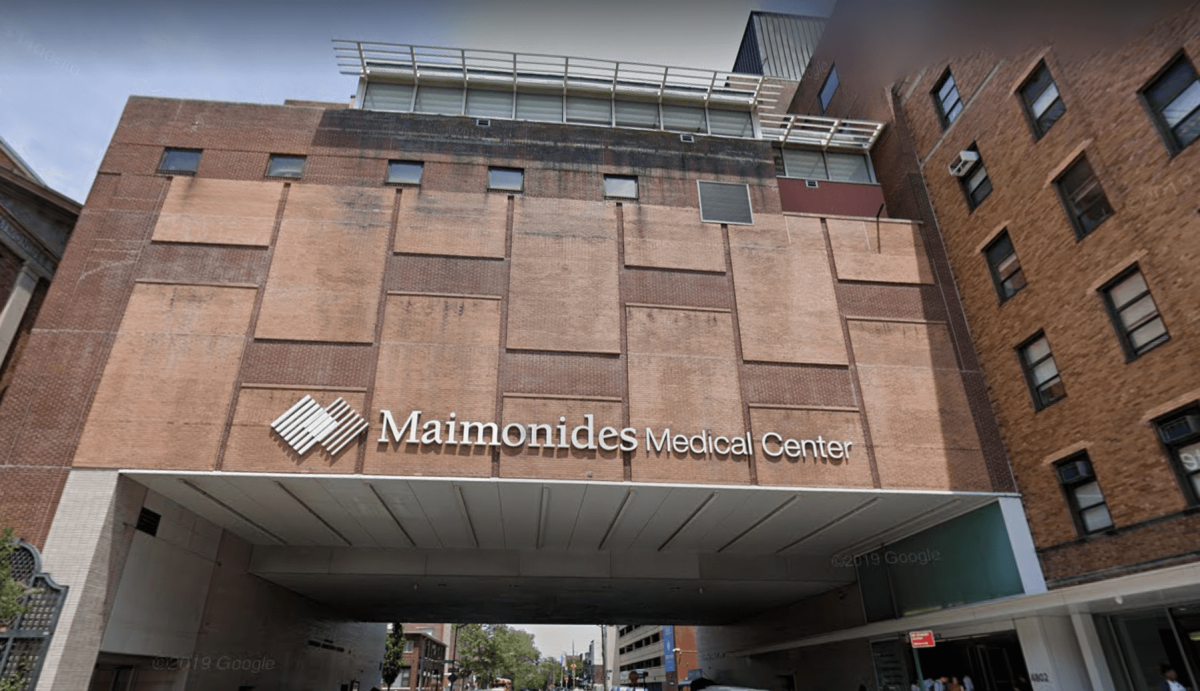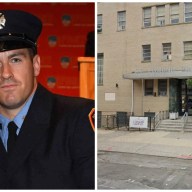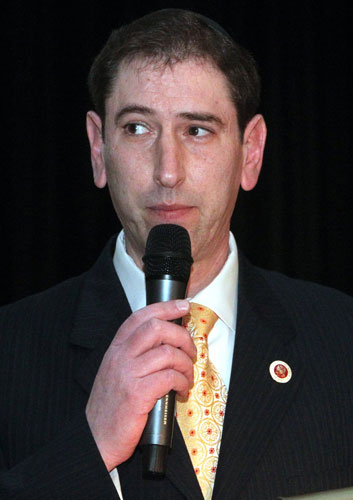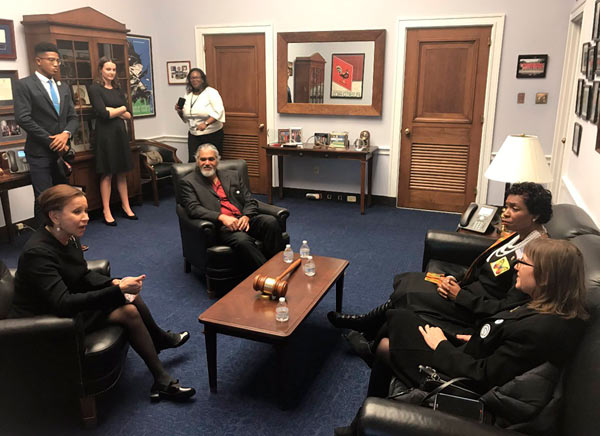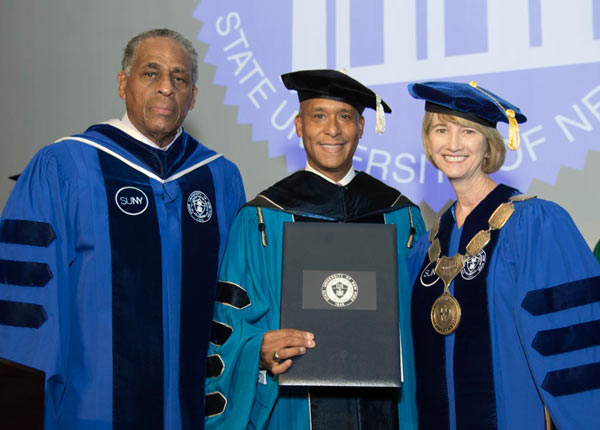A pair of local elected officials are calling on the state’s health department to investigate the state of affairs at Maimonides Medical Center after recent press coverage and patient complaints raised concerns about the quality of care the hospital is providing.
U.S. Rep. Yvette Clarke and state Sen. Kevin Parker, who represent large parts of Brooklyn served by the Borough Park hospital, separately penned letters to DOH commissioner Mary Bassett on Aug. 12 and 17, asking that she swiftly take action to investigate both claims regarding poor care made by patients and the way the hospital has presented itself to the community.
‘Maimonides has essentially become stigmatized’
“Through conversations with constituents and reports from multiple media sources, Maimonides has essentially become stigmatized by New Yorkers who require medical services and much needed medical attention as a ‘last resort’ medical center due to the unacceptable quality of care provided,” Clarke wrote. “Being Brooklyn’s largest safety-net hospital, this is extremely concerning as it is their duty to serve all populations regardless of their insurance status or ability to pay.”
“Safety net hospitals,” like Maimonides, serve large numbers of patients who are either uninsured or are enrolled in Medicaid or Medicare. The hospitals are not-for-profit, and commit to treating patients even if they will not profit on providing care.
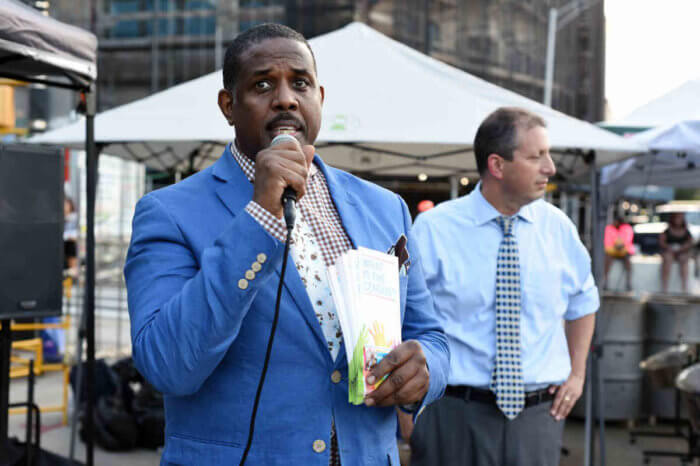
In February, just after Maimonides nurses rallied outside the hospital to call attention to severe understaffing, the New York Post reported that the hospital was paying its top administrators multi-million dollar salaries even as hospital revenue dropped.
“As a safety net hospital, Maimonides plays a central role in the delivery of care to Brooklyn patient,” said Nancy Hagans, president of the New York Nurses Association, at the time. “But the hospital is understaffed on virtually every unit, impeding essential care to patients.”
Hagan has since spoken out against the barrage of recent criticisms of the hospital — making clear in a July 11 response to an Op-ed in The Jewish Voice that the neither the union nor nurses of Maimonides were not involved with a public campaign that criticized hospital leadership. Together with Maimonides, the nurses have achieved “great nurse to patient ratios.”
More than 80% of Maimonides’ inpatients are on government insurance, according to an assessment published by the hospital in 2019.
“Maimonides has been and continues to be a leader in the borough and the state in clinical innovation and patient outcomes, according to multiple independent sources,” a spokesperson for the hospital told Brooklyn Paper. “Like other safety net hospitals, we are continually working to improve the patient experience despite a historically inequitable funding model. Fortunately, State leadership has recognized the need for greater investment in institutions such as Maimonides to help close funding gaps and ensure the most vulnerable New Yorker’s have equal access to quality care.”
Since then, reports out of the hospital have become more dire. In July, as patients complained of long wait times and rooms without air conditioning, five local elected officials called on CEO Kenneth Gibbs to host a community town hall where locals could air their grievances.
Gibbs dodged the request, offering instead to meet with the pols privately. Weeks later, patients shared stories of long wait times and neglect with The City. The outlet also reported that Maimonides had operated at a loss through at least parts of 2021 and 2022.
“With the deep-rooted history that relegates individuals in many states, including New York, to second or third-rate medical care — especially individuals of color — we must ensure federally-funded institutions are delivering high quality care and investigate any claims of financial mismanagement,” Clarke wrote.
‘Misrepresenting quality of care’
In his letter, Parker questioned an Aug. 1 open letter from the Maimonides Board of Trustees. The missive, which appeared to be written in response to recent press coverage of the hospital, claimed the recent criticism was manufactured by a potential donor who was spurned after he requested to take over the board.
That donor reportedly has ties to the group “Save Maimonides,” which says it wants to “address the ongoing neglect and mismanagement at Brooklyn’s largest hospital and restore excellence to our beloved neighborhood hospital.”
But what Parker asked Bassett to investigate was the hospital’s defense of the quality of their care — in the open letter, trustees pointed to high ratings from third-party organizations, claiming they serve a population that is “more at risk than average” and provide medical care “far better” than average.
“By comparing itself to hospitals in other states where, for instance, infant mortality rates per capita are roughly double those in New York, Maimonides is misrepresenting its quality of care,” Parker wrote.
The hospital refuted Parker’s characterization of the data, pointing out that the mortality data he used was based specifically on Medicare patient outcomes — not on infant mortality numbers specifically — and that between 2018 and 2021, Maimonides had consistently ranked among the best in the country for mortality rates.
U.S. News and World Report assessed 208 hospitals in New York State and determined that 29 “meet high U.S. News standards and are ranked in the state.” Maimonides is ranked #29 on that list. Medicare.gov gave the hospital two out of five stars based on a number of factors including mortality rates, safety and timeliness of care, readmission rates, and patient experience.
But a Medicare patient survey gave the hospital just one star, with ratings of doctor and nurse communication, cleanliness of rooms, and more coming in well below average.
According to the state’s health department, Maimonides is a “poor performer” in several categories including patient satisfaction and emergency room wait time — which clocked in at 195 minutes on average. Since 2019, the hospital has received citations related to patients’ rights, nursing services and nursing care plans.
A hospital spokesperson told Brooklyn Paper the Maimonides emergency department has become busier than it can reasonably handle at its current size — a larger emergency room is on its way, hopefully by next year.
“Simply put, the hospital is taking on more [emergency department[ patients than it has capacity for, but no patient is ever turned away,” the spox said. “This results in slightly longer than average wait times.”
The hospital merged with what was formerly the New York Community Hospital earlier this year, and is planning to expand with a new children’s facility, larger emergency room, and more. Maimonides hoped the merger — along with a new campaign called “My Home, My Choice, Maimonides — would convince local patients with private insurance to seek care within the Maimonides network, which would bolster profits, an exec told Brooklyn Paper at the time.
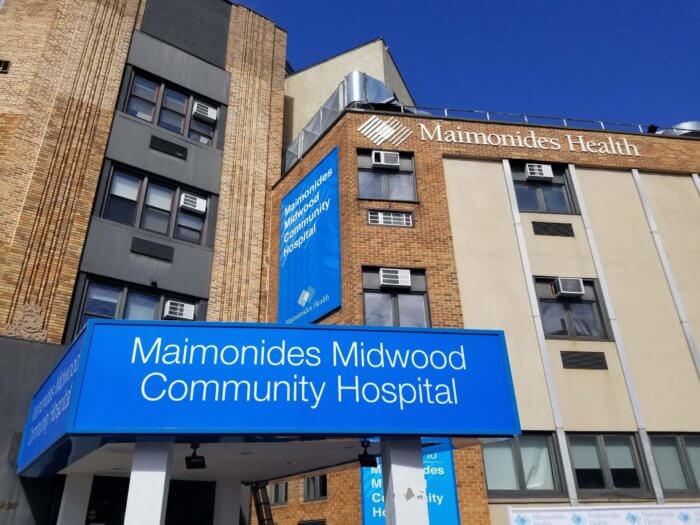
“Racial inequalities are prevalent in New York, too, but comparing Maimonides to even worse hospitals in other states is at best misleading,” Parker wrote. “I raise this in particular because of Maimonides Medical Center’s disturbing history on [minority and women-owned business] initiatives and their continual failure to meet their promises in all parts of our districts.”
Both Clarke and Parker asked the DOH to investigate Maimonides, and Clarke requested the department respond to her letter and share their findings. A representative for both pols said they had not yet heard back from the commissioner.
“The Department is aware of recent reports about Maimonides Hospital in Brooklyn,” a DOH rep told Brooklyn Paper. “Complaints about quality of care are taken very seriously. As this may be the subject of an investigation we cannot comment further.”
Maimonides did not return a request for comment about the letters. In response to the recent criticism, the hospital launched “Maimo Truth,” where it disputes claims of poor patient care and says that the hospital is “the target of an aggressive public disinformation campaign.”
The website also features letters of support and positive testimonials written by patients and a number of organizations that partner with Maimonides.
On Thursday, Save Maimonides announced an Aug. 22 “Town Hall to Save Maimonides,” inviting locals to make their voices heard. Parker will be in attendance, according to the organization, and infamous lawyer and analyst Alan Dershowitz, who grew up in Borough Park, will speak at the event.
Update Aug. 19, 2022, 3:07pm: This story has been updated with comment from Maimonides Health Center. A previous version of the story mischaracterized the hospital’s ranking by U.S. News and World Report. We regret the error.


